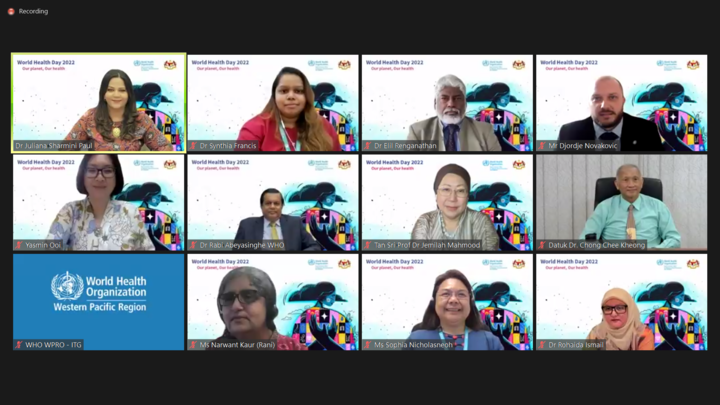KUALA LUMPUR, April 20 – Public health and humanitarian expert Dr Jemilah Mahmood has urged other government ministries, the private sector, and individuals to play more active roles in addressing Malaysia’s rising health burden, as the population ages, risk of non-communicable diseases (NCDs) increases, and infectious disease outbreaks become more common.
Dr Jemilah, currently a professor and director at the Sunway Centre for Planetary Health, said health has to be viewed more broadly in light of climate crisis and future pandemics, which will give rise to more vector-borne diseases and other health issues.
“[We have to acknowledge] that health does not belong to the Health Ministry as [Institute for Medical Research public health physician] Dr Rohaida (Ismail) has said, without proper environmental management and the climate crisis upon us, and the disasters that will happen, we will have, you know, more vector-borne diseases; we will have more issues.
“What about the Ministry of Transport? What is their role in order for them to provide incentives for us to use more public transport – keeping the fossil fuels in the ground? What is the incentive for Malaysia to do this?
“What is the incentive for the Finance Ministry to really push sugar tax, for example, and to also increase taxes so that there are global health benefits, or rather national health benefits,” Dr Jemilah said at the World Health Day 2022 virtual event held on April 7.
“So, a lot of this, is planetary health, it’s that transdisciplinary approach – that political, economic, social, environmental, you know, health, systems coming together in a much more strategic, much more foresight, and much better planning and much better linkages.”
Health Minister Khairy Jamaluddin, in his pre-recorded speech for the event, delivered the same message, saying people “must not solely depend on the MOH” to live healthily, and that Malaysians should voluntarily change their behaviour and increase their health awareness so that the country can become a healthier nation.
Dr Jemilah said the government, the private sector, and individuals must take responsibility, avoid pointing fingers at the other, and work more collaboratively instead.
“This ‘othering’ issue is something we need to get rid of. It is our responsibility.
“Yes, the government has their own responsibilities to put in place policies, but, you know, we also have our role, the private sector has a role, and I think the more collaborative we are, the more we force that collaboration, that is when we will start to advance,” Dr Jemilah said.
Dr Jemilah also spoke about the need to “dejargonise” science to make people understand issues like the pandemic and planetary health.
“I think this is a really important question and, you know, let’s reflect a little bit around Covid, right? You can have all the science in the world, you can have the best vaccines and the best medication, but until and unless people have trust and behave in a way that prevents the transmission of the virus, we will always be in a huge challenge.
“I think this is the crux of the matter – how do you build trust and understanding of issues like the pandemic, and importantly, issues like planetary health?
“My first advice is dejargonise science. I think a lot of the time, scientists love to talk to each other in very fancy words. You know, the UN (United Nations) has a certain speak. The humanitarian sector has a certain speak; health people love to use big words.
“Now, how do you change all that? How do you dejargonise and communicate the important elements because planetary health is now not only a nice thing to have, it’s a moral imperative and potentially, an existential crisis.
“Now, how do you communicate that in a way that doesn’t create panic but rather a real, you know, incentive for people to change their behaviours,” Dr Jemilah said.
Addressing a separate question on the role of the media in highlighting public health issues, Universiti Sains Malaysia nutritionist Dr Yasmin Ooi Beng Houi said she would like to see more active journalism on health reporting.
“Active journalism in the country, at the moment, seems to be channelled to political parties. So, I would like to see more active journalism, asking tough questions to people like us and the many various stakeholders – what are we going to do, what are we doing, what have we done?” Dr Ooi said.








